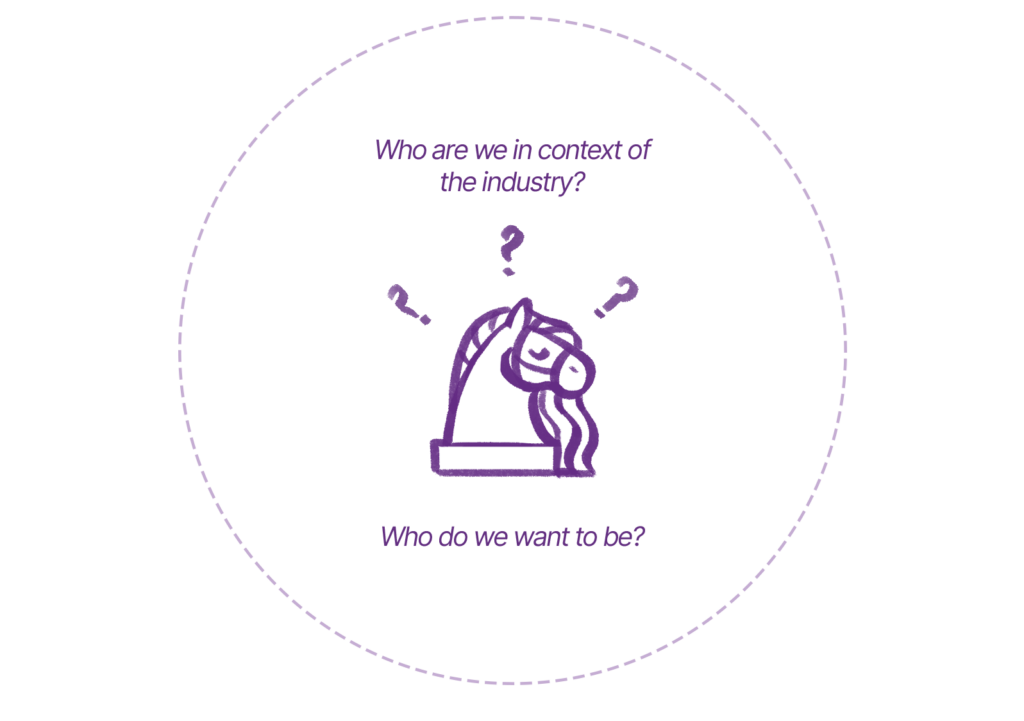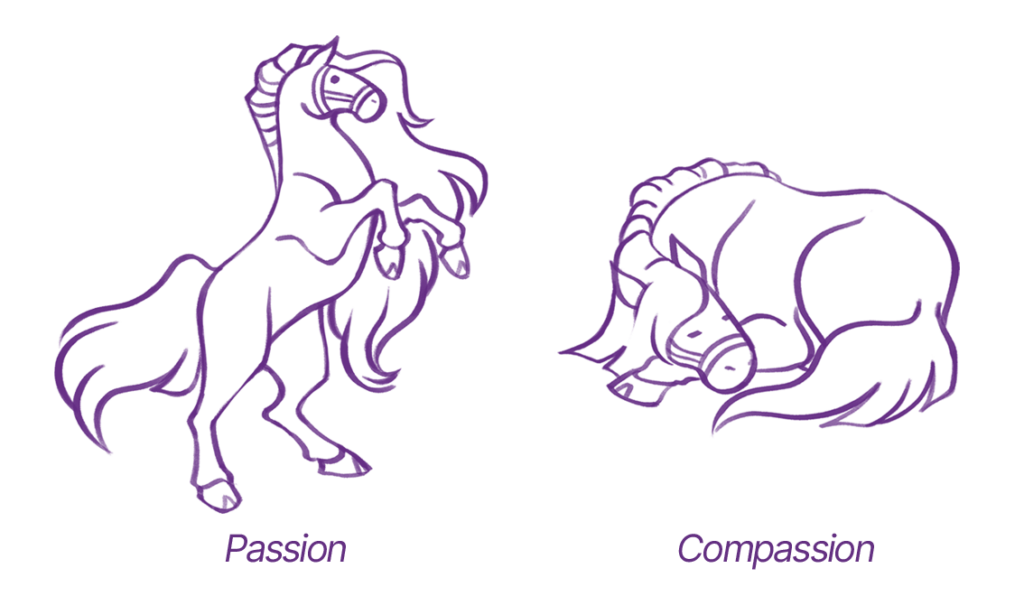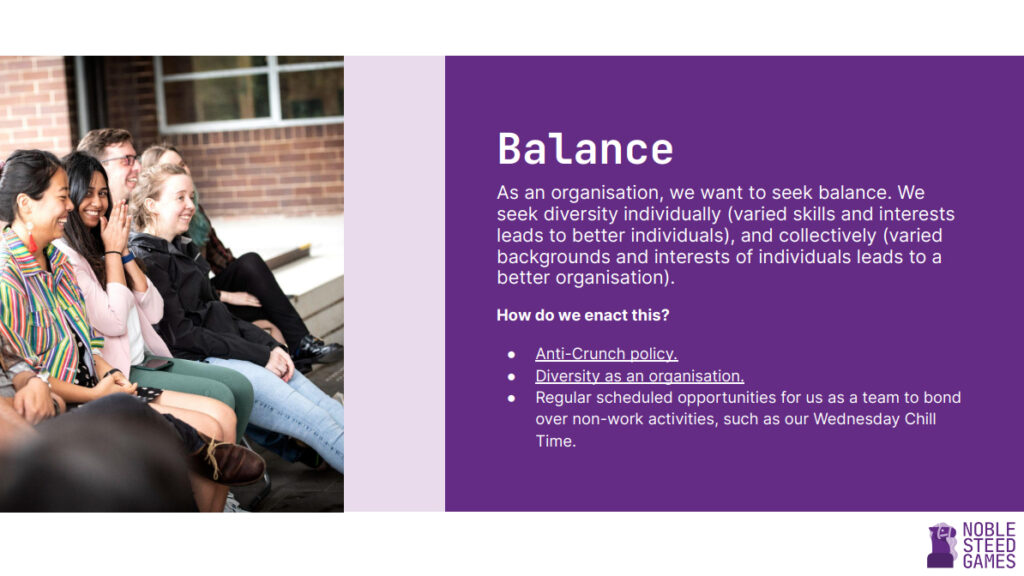Establishing your game studio’s culture is more than just creating fancy web pages about your team. Your studio’s culture should always be backed up by tangible processes and policies to keep organisations accountable!
As you may have heard, we recently rebranded from No Moss Studios to Noble Steed Games to better distinguish ourselves from No Moss, our parent company. With this, we had to more strictly assess our studio’s cultural objectives, and make sure everyone on the team was aligned with it. We thought it might be useful to share the process we used to collectively establish our studio’s core cultural pillars and how we went about having them in practice!
If you’re a small team beginning to establish yourselves, we hope this resource will be valuable to you when you begin establishing your game studio’s culture, team norms, values and missions!
Step 1: Make sure everyone understands the importance of establishing the studio’s culture
The first step for any team is to make sure there is understanding amongst the team that establishing the studio’s culture is a collective effort, and that everyone has something meaningful to contribute. Everyone should care about the direction of the studio and be able to voice out about it.
This is especially the case within the gaming industry, where overwork, crunch, and abuse are frequent issues. In the process of assessing your game studio’s culture and values, we think these issues should be taken into account to actively position yourself in context.

Step 2: Discussion to define studio culture
It took us several months of discussion with the team to establish, define and refine what our studio’s culture is. Reuben, our studio director, initially proposed what core values we shared, then collected feedback from the team about whether this was true or required refinement.
After some back and forth, we found that two core concepts, Passion and Compassion, resonated with all of us. These worked for us as a game studio, as members of a creative industry, defining why we work and how we work.
Passion meant pursuing projects that excite and challenge us, and making opportunities for all employees to build their purposes into their work. Compassion referred to how we collectively cared about our clients, our employees, and our world. In essence, ensuring that we are able to be human, and leverage our humanity to be better, treat each other better, and leave the world better.

Step 3: Setting up policies and procedures
We proceeded to flesh out these concepts, with emphasis about how we as a studio would enact this, making sure we “walked the talk”. Some of these policies were already pre-existing, and those that we found lacking were improved upon or created.
For Passion, this included things like:
- Regular Purpose meetings,
- Policies of being able to choose or create work that you want to work on,
- Weekly retrospective meetings,
- Processes for every team member to pitch internal projects for development and more.
- (If you’d like some insight to these processes, check out our Production E-book here!)
For Compassion, this included:
- Anti-crunch policy
- Diversity policy
- Regular scheduled opportunity for us as a team to bond over non-work activities
- Unlimited unpaid leave
- Role and Pay transparency and more
For each of our policies or actions, we made sure the team had ample opportunity to provide feedback and input. From here, we could all get a much clearer picture of what Noble Steed Games’ culture was and what we stood for as a studio.

Step 4: Communicating to all Stakeholders, Present and Future
The final step was to compile all this to communicate this to any stakeholders, whether new employees or potential clients! For us, we decided a comprehensive PDF culture book and landing page on our website would work! Internally, our new employee onboarding process included going through our documentation on confluence.
To conclude, establishing your studio’s culture is critical, as it guides all of your future work. We hope this article has been helpful in encouraging you to think more critically about your team’s work culture!
We hope this guide has helped! Have a question or want to chat more about game development? Reach out to us!
Other places you can find us:
- Our other game development resources
- Join our Discord server
- Sign up to our newsletter

